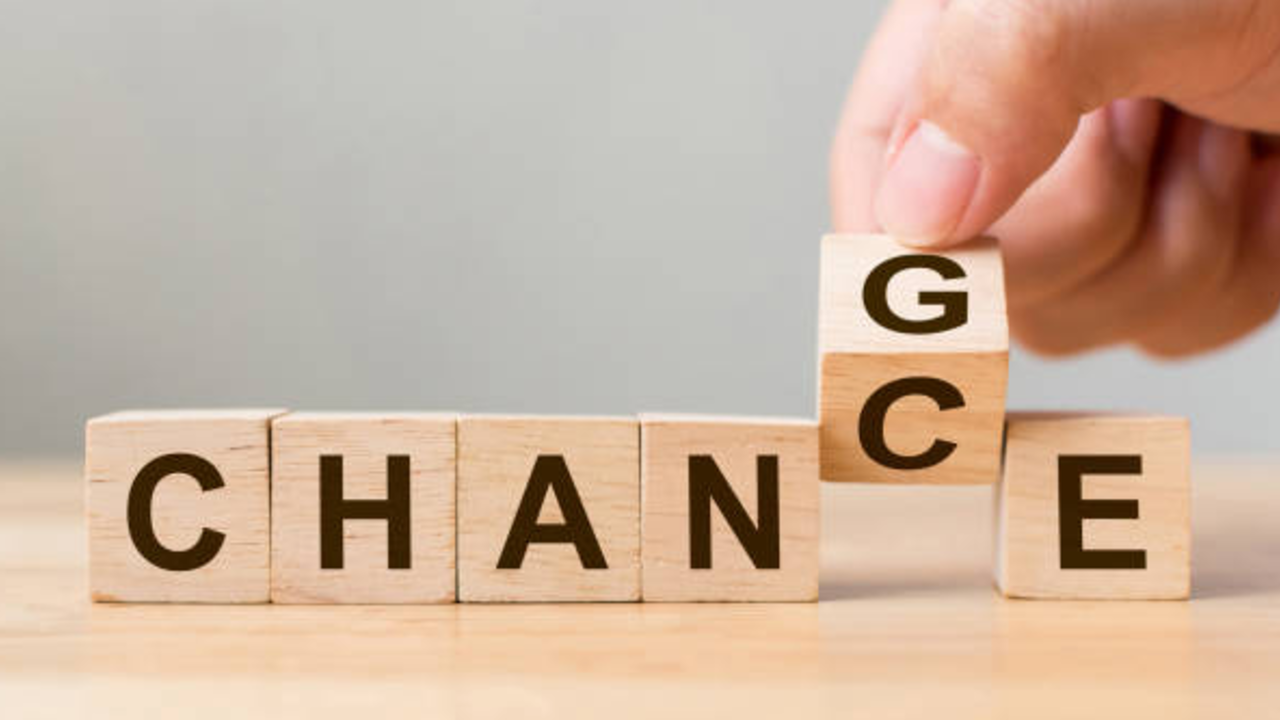Change & threat detection | How to change your mind to offset stress.

‘When we are no longer able to change a situation, we are challenged to change ourselves’
Victor Frankl
Imagine for a moment that you are at work, in a meeting with your team and your direct report begins with 'today's meeting is to share with you some things that are going to need to change around here'. Reflexively what do you think and/or feel even reading that? Do you feel yourself get excited and eager to hear what's going to change or does your mind and body feel the weight of something heavy about to go down?
Change is often correlated to stress. Our brains are naturally wired to threat detect and rightly so. Our survival depends on it. Understanding the negative bias of the brain offers insight into how and why your mind works the way it does. While we cannot (nor should we) change our built in survival systems, emerging science tells us it's possible to train our minds to more skilfully engage experiences that light up our stress response. Is it possible to change how we see, feel and experience change? Victor Frankl's quote above directs us back towards ourselves and where we have control in any given moment. The art and science of mindfulness now reveal how we can work with change.
Seems like everywhere we turn these days there is talk about 'mindfulness'. But what is it really? Mindfulness is simply (but there is nothing simple about doing this consistently in our world!) the ability to bring your attention to this moment, to what is happening in real time in a way that is purposeful and non-judgemental. Over time, we'll address the subtleties of mindfulness in this column of wellness.
If what you hear about mindfulness makes you think it is the answer to finding happiness and resolving all your issues, think again. The hype surrounding mindfulness has lead to the emergence of what is sometimes referred to as "McMindfulness". Mindfulness research suggests that better health (physical and emotional) and happiness occur the more one practices present moment awareness. It won't get rid of the conditions and situations that are stressful, but it will better equip you on how to navigate change and stress. The research is also clear that if you chase happiness, you are unlikely to find it. Cultivating peace of mind (equanimity) stands a better chance.
If change is a part of your life right now and it is showing up as stress, I'd invite you first to simply become a witness to your experience with change or stress. How does this stress show up in your world? Can you become aware of your thoughts that might reveal tightly held beliefs and attitudes that make the change difficult? Are there underlying fears that are being fuelled or resurfaced with the change? Where does stress show up for you in the body? Is there muscle tightening in your jaws? Shoulders? Does a sudden change impact your digestive system in any way? Is there heaviness to your emotions? An increase in heart rate? A decreased attention span? Developing the skill of kind awareness about our internal reactions to change help build insight into who we are. This insight reconnects us back to ourselves and how we navigate the world. It also serves to reconnect the body with the mind. Our glorification with busyness and success has us conditioned to believe it's our higher executive functions in the brain that are most important and that we drag along these bodies of ours without tapping into the wisdom we now know comes from below the pre-frontal cortex region of the brain. And since we have no shortage of stress in our world, there will be ample opportunity for you to tap into this practice of becoming a witness to yourself.
Meditation is often an important part of mindfulness practice, but may I suggest that if you haven't meditated before, don't feel the pressure to start now after reading this article. The notion of closing your eyes seems easy enough, but focusing your mind to the breath is actually quite challenging to do initially. If you have trauma in your personal/professional history, you should have a trauma-sensitive approach to meditation. If you are in crisis (emotionally), now is not the time to close your eyes and be alone with yourself in meditation without understanding how to navigate difficult emotions or memories that may arise. We will cover more about mediation and trauma-sensitive approaches to help you understand how to skilfully and safely lean into the work of getting to know yourself in future columns.
So, between now and next time, see if you can simply become more aware of your thought processes without any need to change a thing.
Resource Recommendations: Jon Kabat-Zinn and Victor Frankl are two people I would suggest looking up online (abundant videos for free) and a list of books if you have an interest in digging a little deeper. Victor's book 'Man's Search for Meaning' is powerful but very tough read. It recounts his experience in concentration camps. His contribution of logotherapy (search for meaning in life) has been hugely impactful in the body of psychology for years.
If you have specific questions or suggestion you'd like me to address here or if you are interested in resiliency training/workshops offered by Wellth Management, feel free to contact me at: wendy@wellthmanagement.ca or by visiting www.wellthmanangement.ca

